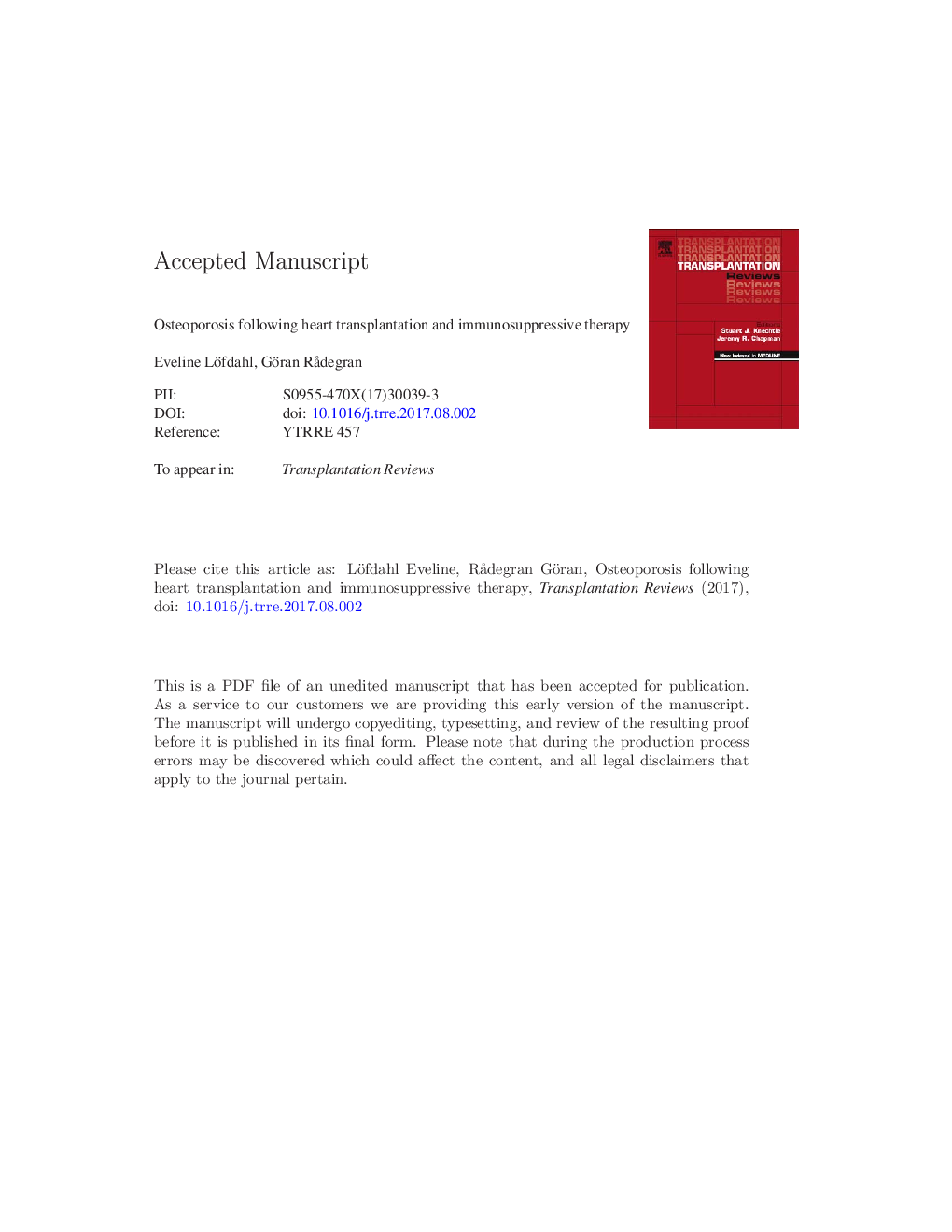| Article ID | Journal | Published Year | Pages | File Type |
|---|---|---|---|---|
| 8827627 | Transplantation Reviews | 2017 | 31 Pages |
Abstract
Heart transplantation (HT) remains the ultimate final therapy for patients with end-stage heart failure, who despite optimal medical and surgical treatments exhibit severe symptoms. To prevent rejection of the transplanted organ, HT patients require life-long immunosuppressive therapy. The goal of the immunosuppression is to minimise the risk of immune-mediated graft rejection, while avoiding clinical side-effects. Current immunosuppressive agents have yielded good survival outcome, however, complications of the immunosuppressive therapy, such as impaired bone strength and increased fracture risk, are common among HT patients rendering increased morbidity and mortality rates. The main aim of the present review was to summarise current knowledge on bone strength impairment after HT and concomitant immunosuppressive therapy.
Keywords
CAVHRTKDOQImTORRANKLISHLTGFRBMDFRAXBMUDXApTHOPGKidney Disease Outcomes Quality Initiativefracture risk assessment toolOsteoprotegerinstandard deviationschronic kidney diseaseBone mineral densitydual energy X-ray absorptiometryRankbody mass indexBMIcardiac allograft vasculopathyFas LigandFasLCKDGlomerular filtration ratemammalian target of rapamycinhormone replacement therapyparathyroid hormonebasic multicellular unitHeart transplantationCorticosteroids
Related Topics
Health Sciences
Medicine and Dentistry
Transplantation
Authors
Eveline Löfdahl, Göran RÃ¥degran,
